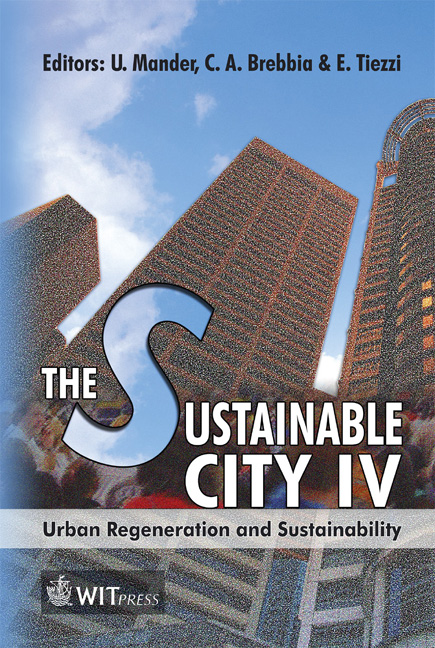The Ethics Of Mobility: A Framework For Assessing Mobility Paradigms
Price
Free (open access)
Transaction
Volume
93
Pages
10
Published
2006
Size
273 kb
Paper DOI
10.2495/SC060541
Copyright
WIT Press
Author(s)
T. Shannon
Abstract
Given the recognised adverse effects of automobility, there is a strong need for a normative assessment framework capable of evaluating the desirability of mobility arrangements, including transport infrastructure and its supportive urban form. The existing decision-making framework, based on technical models, does not incorporate an analysis of what mobility ought to achieve. By adopting the rationale used by moral philosophers, it is possible to construct a framework of norms based on the ends that mobility should achieve. Mobility should produce positive and equitably distributed benefits not just economically, but also environmentally and socially. Keywords: mobility, ethics, automobility, sprawl, reflexive mobility, norms. 1 Introduction In the ancient Islamic city of Kano in northern Nigeria, government officials are banning women from riding on motorcycle taxis, whose drivers may ‘press their bodies close’. Women’s public transport options will be reduced to public minibuses. The policy is an effort to enforce the strict Islamic legal code [1], and is therefore an example where an ethical issue relating to mobility has been identified and acted upon with the assistance of a moral framework. The rationale is simple: the objective is to reduce contact between men and women while travelling, and the chosen solution is to control women’s mobility choices. Ethics, or moral philosophy, is the junction where philosophy combines values and practical issues, thereby providing a major part of the practical justification for philosophy [2]. A ‘moral’ or ‘ethic’ is a behavioural expectation that arises from our notions of what is right and wrong, and therefore provides a
Keywords
mobility, ethics, automobility, sprawl, reflexive mobility, norms.





